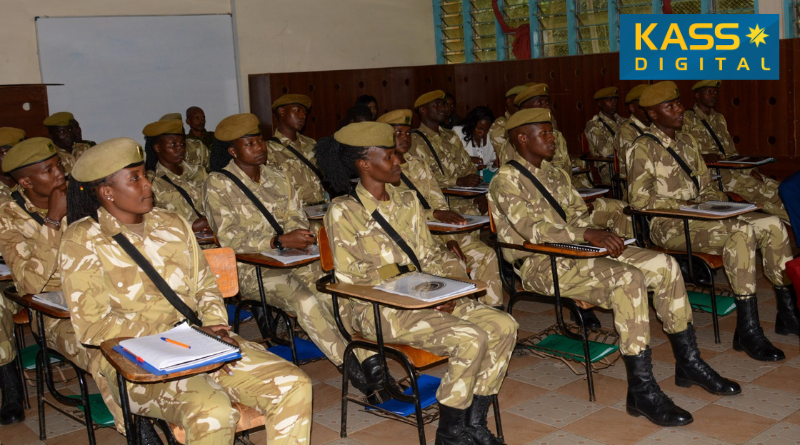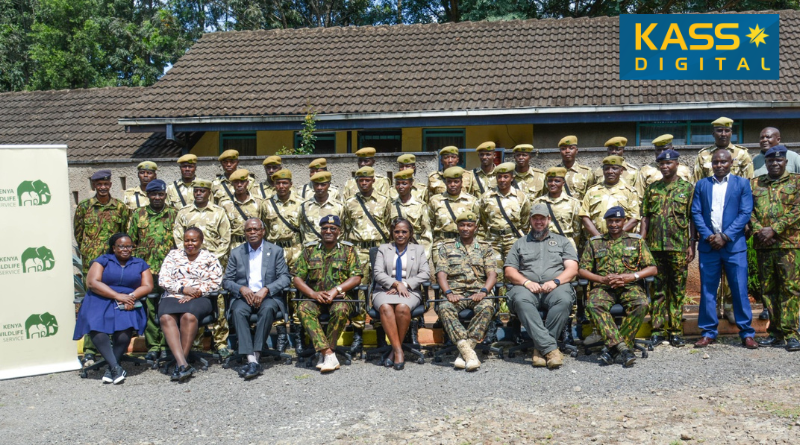Rangers Trained in Canine Detection to Curb Wildlife Trafficking
By Chemtai Kirui
NAIROBI, May – Wildlife authorities have launched a new training course to equip rangers with canine detection skills aimed at curbing wildlife trafficking and protecting endangered species.
The two-month programme, taking place at the Kenya Police Dog Unit Training Academy in Lang’ata, brings together 21 rangers — including seven women — for intensive instruction in tracking and detection.
The training is being implemented by the Kenya Wildlife Service (KWS), in partnership with the Kenya Police and African Wildlife Foundation (AWF).
“Dogs are force multipliers in law enforcement, capable of detecting what humans cannot,” said Isaac Kiptebis, Commandant of the Kenya Police Canine Unit. “Their handlers develop not just skills, but a passion for this vital work that protects our natural heritage.”
The course builds on a partnership launched in 2015 between KWS and AWF, which helped establish Kenya’s first formal canine training unit.

Since then, the country has grown its dog-handling capacity from just two dogs to a national network guarding key entry points, including Jomo Kenyatta International Airport and Kilindini Port in Mombasa.
“The 2015 partnership was transformative,” said Celina Mwangangi, KWS Senior Assistant Director for Investigations. “It enabled us to deploy trained handlers and dogs that significantly improved our interception capabilities.”
Philip Muruthi, AWF Vice President for Species Conservation, said the unit’s work supports broader environmental goals. “Elephants, for example, replant forests through seed dispersal.
By protecting them, we’re also protecting the ecosystems they sustain,” he said.
Kenya is seen as a regional leader in tackling wildlife crime, but trafficking remains a major threat to biodiversity across the continent.
KWS urged members of the public to report wildlife crimes through its 24-hour hotline.




